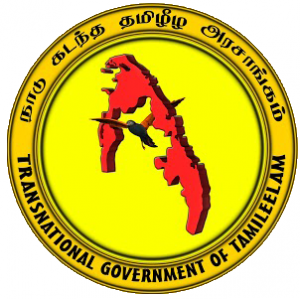TGTE Announces Victims Driven International Justice Initiative.UNHRC’s Latest Sri Lanka Resolution Failed Tamil Victims |

UNHRC’s latest Resolution makes no mention of Sri Lanka’s complete failure to investigate the atrocity crimes committed against Tamil victims We will exercise our Right to the Truth and our Right to Know under international law to obtain access to information gathered by the UN Secretary-General and UN High Commissioner for Human Rights.”— Transnational Government of Tamil Eelam (TGTE)NEW YORK, UNITED STATES OF AMERICA, April 1, 2019 /EINPresswire.com/ — Today, the Transnational Government of Tamil Eelam (TGTE) commenced a Victim Driven International Justice (VDIJ) initiative to assert the rights of Tamil victims under international law. The TGTE invites other Tamil organizations to join us in this important initiative. The initiative will consist of the following:
Despite the involvement of the international community from the very first day the armed conflict ended, ten years have passed and still, no step has been taken to investigate or prosecute those responsible for some of the worst crimes committed this century. On 22 March 2019, the Human Rights Council passed its latest resolution on Sri Lanka (A/HRC/40/L.1). The resolution makes no mention of Sri Lanka’s complete failure to investigate the atrocity crimes committed against Tamil victims and UN employees. It avoids the conclusion of every report by the High Commissioner since the adoption of Resolution A/HRC/30/1, that Sri Lanka has failed in its core obligation to investigate crimes. It ignores the High Commissioner’s most recent assessment: “Since 2015, virtually no progress has been made in investigating or prosecuting domestically the large number of allegations of war crimes or crimes against humanity collected by OHCHR in its investigation, and particularly those relating to military operations at the end of the war.” H.E. Ms. Michelle Bachelet Jeria, The High Commissioner for Human Rights 8 February 2019, (A/HRC/40/23) The Council, in resolution 40/L.1 continues to ignore the recommendation that the crimes committed in Sri Lanka require an internationalized tribunal; sets no time-line for Sri Lanka to ensure accountability; and adjourned any further discussion of Sri Lanka’s failure to fulfill its obligations under A/HRC/30/1 until 2021. Sadly, the Council’s apathy to the continued suffering of victims and their families is not unique to Sri Lanka. We have entered a new era of international relations where atrocities in Sri Lanka, Syria and Myanmar are not met with the firm resolve demonstrated in Nuremberg, Yugoslavia, Rwanda and Sierra Leone. Instead, the international community has become complacent – it has forgotten its collective promise that a genocide would not happen again. Its feigned outrage at atrocity crimes now dissipates quickly and without embarrassment. International investigations and prosecutions of the killing of over 7,000 men and boys in Srebrenica in July 1995 began immediately. The first step towards accountability has yet to be taken with respect to the 40,000 to 70,000 civilians killed in Sri Lanka a decade later. The international community has forgotten the warning Justice Robert Jackson, the Chief Prosecutor gave in his opening statement at Nuremberg explaining why justice for atrocity crimes must be undertaken no matter what the cost or how politically difficult: “civilization cannot tolerate their [atrocity crimes] being ignored, because it cannot survive them being repeated.” While it remains incumbent on the international community to do its duty, today, for the sake of Tamil victims around the world and for the sake of all victims who are denied justice, we will pursue every possible avenue under international law to obtain justice ourselves with this Victim Driven International Justice initiative. The TGTE invites all Tamil Organizations and indeed all defenders of Justice to join us in this important initiative. |
